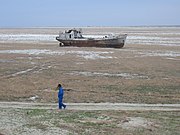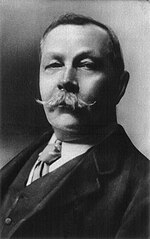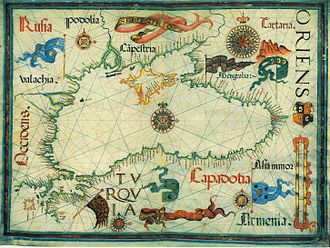Wiki User 68/My Portal
 |
 |

| |

Wiki User 68 hails from the Great British Isles specifically England ⓘ which is a country that is part of the United Kingdom.[1][2][3] Its inhabitants account for more than 83% of the total UK population,[4] whilst its mainland territory occupies most of the southern two-thirds of the island of Great Britain. England shares land borders with Scotland to the north and Wales to the west and elsewhere is bordered by the North Sea, Irish Sea, Celtic Sea, Bristol Channel and English Channel. The capital is London, the largest urban area in Great Britain, and the largest urban zone in the European Union by most, but not all, measures.[5]
England became a unified state in the year 927 and takes its name from the Angles, one of the Germanic tribes who settled there during the 5th and 6th centuries. It has had a significant cultural and legal impact on the wider world[6] being the place of origin of the English language, the Church of England, and English law, which forms the basis of the common law legal systems of countries around the world. In addition, England was the birth place of the Industrial Revolution and the first country in the world to industrialise.[7] It is home to the Royal Society, which laid the foundations of modern experimental science.[8] England is the world's oldest parliamentary system[9] and consequently constitutional, governmental and legal innovations that had their origin in England have been widely adopted by other nations.
Selected Panorama
Selected Article

Rockingham Castle formerly a royal castle and hunting lodge, now the family home of the Saunders Watson family, in Rockingham Forest on the northern edge of the English county of Northamptonshire a mile to the north of Corby.
Rockingham Castle is often stated as being in the county of Leicestershire. This mistake arises due to Rockingham having a Market Harborough postal address.
It was formerly a Saxon fort and the castle was founded shortly after William the Conqueror arrived in England. It was created because its elevated terrain provided an excellent defence of the surrounding land from the local population. It was used by Norman kings as a retreat when travelling because Rockingham Forest was good for hunting wild boar and deer.
By the time that Henry VIII came to power the castle was in decline and was no more than a hunting lodge for nobles. It was restored during the ensuing centuries following several small skirmishes in the English Civil War and finally restored to its full elegance and grace in the late nineteenth century.
It overlooks the villages of Rockingham and Caldecott and enjoys good views over the Welland Valley. Now privately owned, it is open to the public on certain days.
Rockingham Castle was a popular haunt of writer Charles Dickens who was a great friend of Richard & Levinia Watson, ancestors of the current family. The Castle is the inspiration for Chesney Wold in one of his greatest works, Bleak House.
A cricket pitch lies within the grounds of the castle and is home to Old Eastonians Cricket Club.
Selected Picture
Selected Natural History

Desertification is the degradation of land in arid and dry sub-humid areas, resulting primarily from natural activities and influenced by climatic variations. It is also a failure of the ecological succession process. A major impact of desertification is biodiversity loss and loss of productive capacity, for example, by transition from land dominated by shrublands to non-native grasslands. In the semi-arid regions of southern California, many coastal sage scrub and chaparral ecosystems have been replaced by non-native, invasive grasses due to the shortening of fire return intervals. This can create a monoculture of annual grass that cannot support the wide range of animals once found in the original ecosystem. In Madagascar's central highland plateau, 10% of the entire country has been lost to desertification due to slash and burn agriculture by indigenous peoples. In Africa, if current trends of soil degradation continue, the continent will be able to feed only 25% of its population by 2025, according to UNU's Ghana-based Institute for Natural Resources in Africa.[10] Globally, desertification claims a Nebraska-sized area of productive capacity each year.[11]
Selected Technology

Hydroponics (from the Greek words hydro water and pono labor) is a method of growing plants using mineral nutrient solutions, without soil. Terrestrial plants may be grown with their roots in the mineral nutrient solution only or in an inert medium, such as perlite, gravel, or mineral wool.
Plant physiology researchers discovered in the 19th century that plants absorb essential mineral nutrients as inorganic ions in water. In natural conditions, soil acts as a mineral nutrient reservoir but the soil itself is not essential to plant growth. When the mineral nutrients in the soil dissolve in water, plant roots are able to absorb them. When the required mineral nutrients are introduced into a plant's water supply artificially, soil is no longer required for the plant to thrive. Almost any terrestrial plant will grow with hydroponics. Hydroponics is also a standard technique in biology research and teaching.
In the news


- 30 April 2024 – 2024 Hainault sword attack
- A man attacks people with a sword after crashing a car into a house in Hainault, London, England, United Kingdom, killing a 14-year-old boy and injuring four other people, including two police officers. (BBC News) (The New York Times)
- 17 April 2024 –
- Scientists announce that they have identified fossil remains of the Ichthyotitan, the largest marine reptile currently known, in the Westbury Formation in England. (NOS)
Selected Biography

Sir Arthur Ignatius Conan Doyle, DL (22 May 1859 – 7 July 1930) was an author most noted for his stories about the detective Sherlock Holmes, which are generally considered a major innovation in the field of crime fiction, and for the adventures of Professor Challenger. He was a prolific writer whose other works include science fiction stories, historical novels, plays and romances, poetry, and non-fiction.
Arthur Conan Doyle was born on 22 May 1859, in Edinburgh, Scotland, to an English father of Irish descent, Charles Altamont Doyle, and an Irish mother, née Mary Foley, who had married in 1855.[12] Although he is now referred to as "Conan Doyle", the origin of this compound surname is uncertain.[13] Conan Doyle's father was a chronic alcoholic, and was the only member of his family who, apart from fathering a brilliant son, never accomplished anything of note.
Selected Geography

The Black Sea is an inland sea bounded by southeastern Europe, the Caucasus and the Anatolian peninsula (Turkey) and is ultimately connected to the Atlantic Ocean via the Mediterranean and Aegean Seas and various straits. The Bosporus strait connects it to the Sea of Marmara, and the strait of the Dardanelles connects it to the Aegean Sea region of the Mediterranean. These waters separate eastern Europe and western Asia. The Black Sea also connects to the Sea of Azov by the Strait of Kerch.
The Black Sea has a positive water balance, which results in a net outflow of water 300 km³ per year through the Bosphorus into the Aegean Sea (part of the Mediterranean Sea). Mediterranean water flows into the Black Sea as part of a 2-way hydrological exchange. The Black Sea outflow is less salinated and cool, therefore floats over the warm, relatively more salinated Mediterranean inflow. The Black Sea also receives river water from large Eurasian fluvial systems to the north of the Sea, of which the Don, Dnieper and Danube are the most significant.
In the past, the water level has varied significantly. Depending on the water level in the basin, more or less of the surrounding shelf and associated aprons are aerially exposed. At certain critical depths, it is possible for connections with surrounding water bodies to become established. It is through the most active of these connective routes, the Turkish Straits System (TSS), that the Black Sea joins the global ocean system. When this hydrological link is not present, the Black Sea is a lake, operating independently of the global ocean system. Currently the Black Sea water level is relatively high, thus water is being exchanged with the Mediterranean. The TSS connects the Black and Aegean Seas and comprises the Strait of Bosphorus Strait (Strait of Istanbul), the Marmara sea and the Strait of Dardanelles (Strait of Canakkale). The Black Sea also connects to the Sea of Azov via the Strait of Kerch
Categories
Selected quote
A language is a dialect that has an army and a navy.
- Max Weinreich
- linguist and author (1894-1969)
Did you know?
- ...that optimistic estimations of peak oil production forecast the global decline will begin by 2020 or later, and assume major investments in alternatives will occur before a crisis, without requiring major changes in the lifestyle of heavily oil-consuming nations. These models show the price of oil at first escalating and then retreating as other types of fuel and energy sources are used?[14]
- ...that if the Greenland ice-sheet melted through global warming, it would raise the global sea level by 7 meters, or 22 feet?
Topics
Related portals
WikiProjects
 |
||
| WikiProject Africa | WikiProject Cape Verde | WikiProject Council |
Things to do
Wikimedia
- ^ The Countries of the UK statistics.gov.uk, accessed 10 October, 2008
- ^ "Countries within a country". 10 Downing Street. Retrieved 2007-09-10.
The United Kingdom is made up of four countries: England, Scotland, Wales and Northern Ireland
- ^ "ISO 3166-2 Newsletter Date: 2007-11-28 No I-9. "Changes in the list of subdivision names and code elements" (Page 11)" (PDF). International Organisation for Standardisation codes for the representation of names of countries and their subdivisions -- Part 2: Country subdivision codes. Retrieved 2008-05-31.
ENG England country
- ^ National Statistics Online - Population Estimates. Retrieved 6 June 2007.
- ^ The official definition of LUZ (Larger Urban Zone) is used by the European Statistical Agency (Eurostat) when describing conurbations and areas of high population. This definition ranks London highest, above Paris (see Larger Urban Zones (LUZ) in the European Union); and a ranking of population within municipal boundaries also puts London on top (see Largest cities of the European Union by population within city limits). However, research by the University of Avignon in France ranks Paris first and London second when including the whole urban area and hinterland, that is the outlying cities as well (see Largest urban areas of the European Union).
- ^ England - Culture. Britain USA. Retrieved 12 September 2006.
- ^ "Industrial Revolution". Retrieved 2008-04-27.
- ^ "History of the Royal Society". The Royal Society. Retrieved 2008-09-03.
- ^ "Country profile: United Kingdom". BBC News. Retrieved 2009-04-27.
- ^ Africa may be able to feed only 25% of its population by 2025
- ^ Environmental failure: a case for a new green politics
- ^ Lellenberg, Jon; Daniel Stashower; Charles Foley (2007). Arthur Conan Doyle: A Life in Letters. HarperPress. pp. 8–9. ISBN 978-0-00-724759-2. Stashower, Daniel (2000). Teller of Tales: The Life of Arthur Conan Doyle. Penguin Books. pp. 20–21. ISBN 0-8050-5074-4.
- ^ Stashower says that the name originated from his great-uncle Michael Conan, a distinguished journalist, from whom Arthur and his elder sister, Annette, received the compound surname of "Conan Doyle" (Stashower 20 – 21). The same source points out that in 1885 he was describing himself on the brass nameplate outside his house, and on his doctoral thesis, as "A. Conan Doyle". However, other sources (such as the 1901 census) indicate that Conan Doyle's surname was "Doyle", and that the form "Conan Doyle" was only used as a surname in his later years.[citation needed]
- ^ "CERA says peak oil theory is faulty". Cambridge Energy Research Associates (CERA). 2006-11-14. Retrieved 2008-07-27.


























